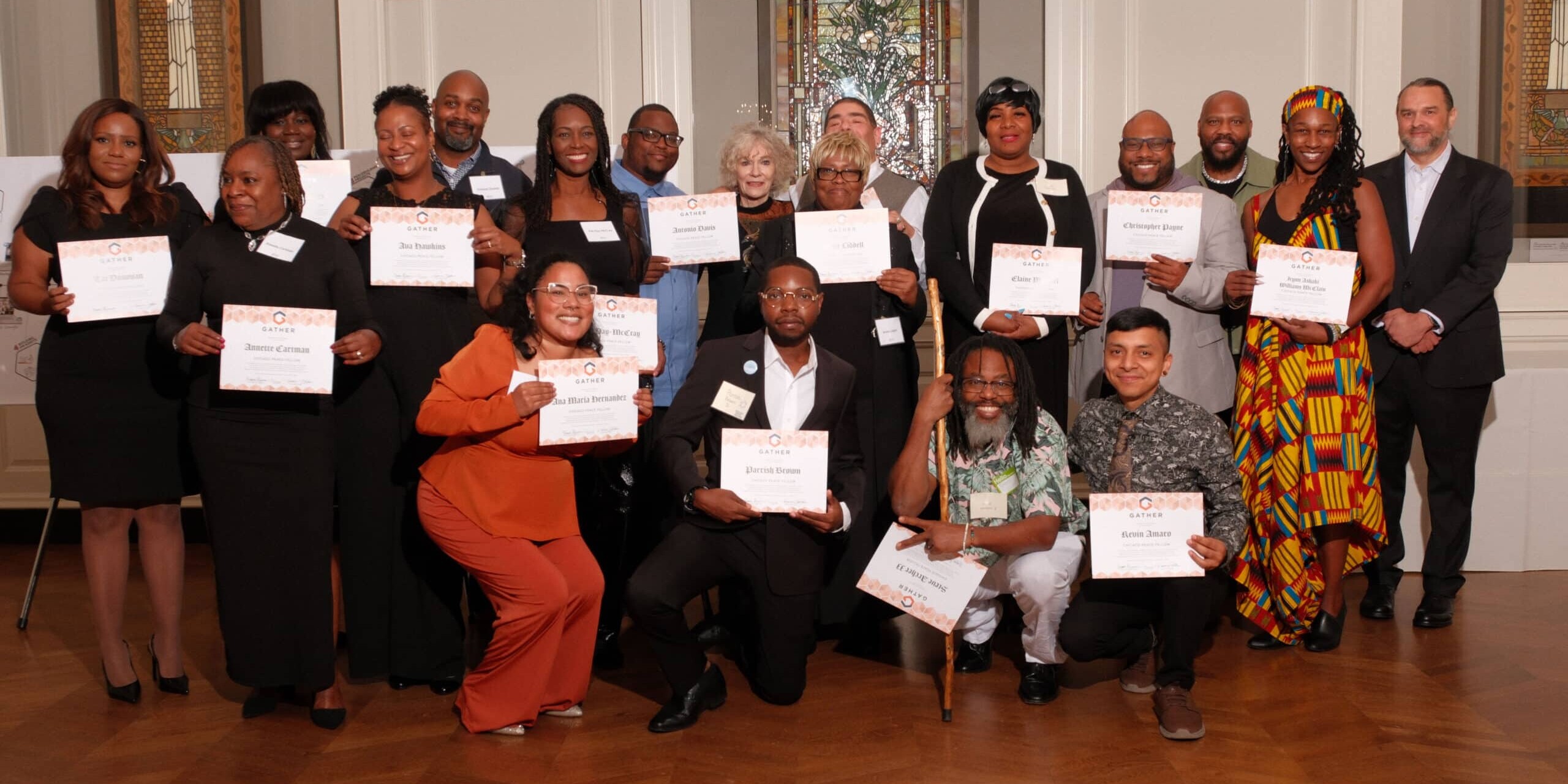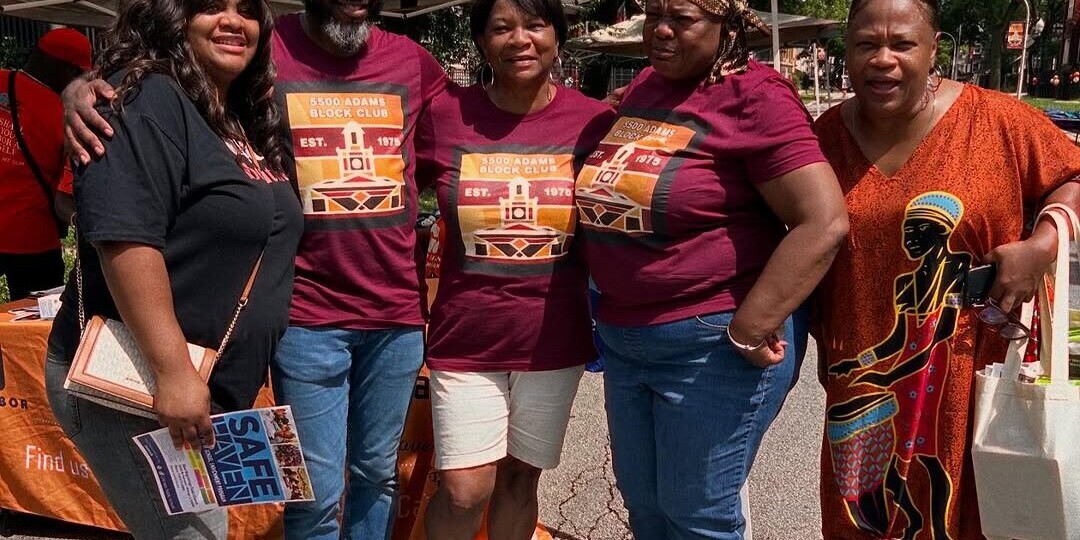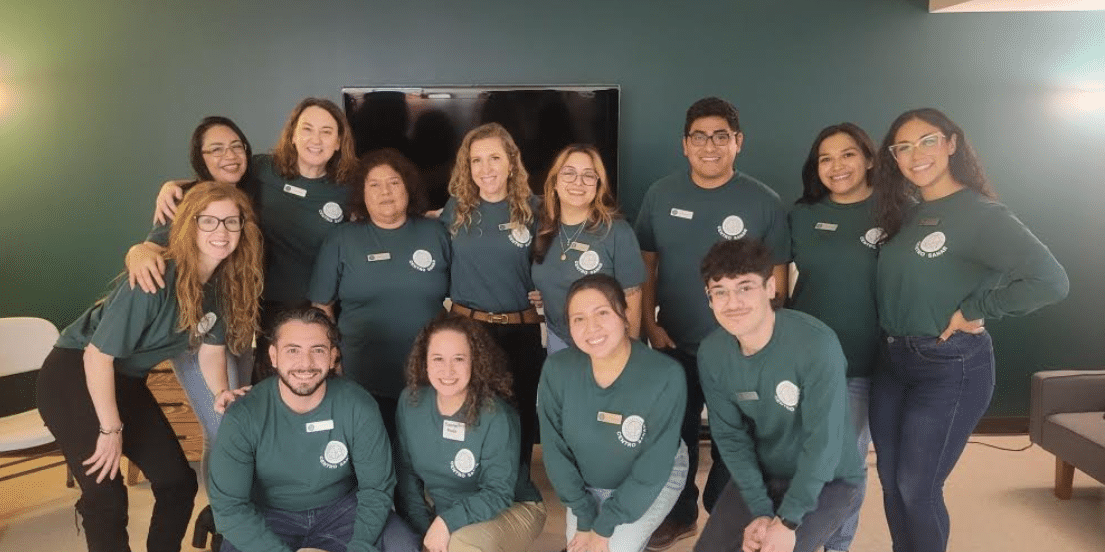
Advisors to the Goldin Institute’s Chicago Peace Fellows initiative came together over dinner April 30 to hear updates about the Fellows and discuss the implications of their work in a context of the city’s ongoing crisis of violence.
Over plates of pasta at a restaurant across the street from City Hall, Goldin Institute Executive Director Travis Rejman, Program Coordinator Burrell Poe and Special Advisor Gabe Gonzalez briefed the attendees on the Peace Fellows’ progress through the capacity-building curriculum the Goldin Institute created based on our 17 years of experience working with grassroots organizers around the world.
The Peace Fellows initiative was launched earlier this year with the support of the Conant Family Foundation to connect and equip 19 prior grantees from the Chicago Fund for Safe and Peaceful Communities who were provided with a stipend as well as an iPad pre-loaded with the GATHER learning software authored by the Goldin Institute.
John Zeigler, director of DePaul University’s Egan Office of Urban Education and Community Partnerships, participated in the Peace Fellows workshop dedicated to “asset mapping,” and came away impressed. Asset mapping – creating geographic representations of community-based resources – must be done methodically to be effective, he cautioned, but many of the Peace Fellows had long histories in their neighborhoods, which they used to inform their maps.
[quote]“Many people in the room were legends in their own right. What was rich in the conversation was that they could connect stories to their assets. What I heard was knitting together their stories so they became a map.” — John Zeigler [/quote]
Deborah Bennett, a senior program officer at the Polk Bros. Foundation, one of the philanthropies participating in the Fund for Safe and Peaceful communities and supporter of the Peace Fellows program, said interviews with prior grantees revealed that many felt isolated, even from other organizers who were in the same neighborhood. They were focused mainly on their day-to-day struggles and were rarely able to get an overview of their own communities, let alone the city as a whole.
Deborah shared, “What we learned was that they really appreciated the value of bringing people together so they could figure out what was going on in their communities.” Deborah was certain, therefore, that the Peace Fellows would be able to help each other in their work even as they met with people in key institutions and shaped their understanding of life in the neighborhoods.
[quote]“We’re lifting up the ideas of those most impacted by violence.” — Deborah Bennett[/quote]
Mimi Frankel, a member of the Frankel Family Foundation’s Board of Directors and the Goldin Institute’s Board of Advisors, questioned the efficacy of traditional approaches to counteracting gangs and illegal drug trafficking, and suggested greater involvement from the corporate sector.
[quote]“Businesses are out there and they’re looking for a way to be involved.” — Mimi Frankel [/quote]
Teny Gross, executive director of the Institute for Non-Violence, said Chicago was behind other large cities such as New York or Los Angeles in developing strategies for reducing violence, but was optimistic that the key players were in place and major change would soon be realized.
The dinner was also attended by Leslie Ramyk, executive director of the Conant Family Foundation; Lisa Dush, a DePaul University professor who is conducting an academic evaluation of GATHER; Keith Lewis from the University of Illinois at Chicago; Leif Elsmo, executive director of community & external affairs at University of Chicago Medicine; Teresa Zeigler; Gia Biagi, director of Urbanism and Civic Impact at Studio Gang; and Goldin Institute Chief of Staff Oz Ozburn.




